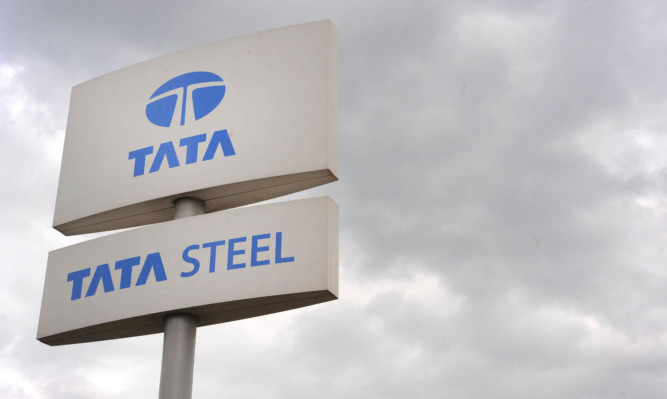
Scotland’s last remaining steel plants are under threat of closure as part of a controversial takeover by a US billionaire.
Steel industry sources have told The Sunday Post that Tata Steel’s Dalzell plant in Motherwell and Cambuslang’s Clydebridge works are the most vulnerable from the deal with the Geneva-based US businessman Gary Klesch.
The plants, which employ more than 400 people, are among eight facilities across the UK which are subject to a takeover from the Klesch Group.
A market analysis of Klesch, prepared for the trade unions and seen by The Sunday Post, describes the firm as “ruthlessly opportunistic” and, contrary to the firm’s claims, “has little experience in the steel industry”.
The dossier also details a string of deals the firm has been involved in which saw assets run down, sold off or mired in legal rows.
Tom Greatrex, MP for Rutherglen and Hamilton West, is leading a delegation of Labour MPs to crunch talks on the takeover with Business Secretary Vince Cable this week.
He said: “The workers are at these plants are rightly worried about the sale and the proposed new owner’s track record of asset-stripping will only fuel this concern. We can’t allow anything that threatens a perfectly viable and healthy steel industry.
“The plants in Scotland have been trying to catch up after missing out on the lucrative main steel contracts for the new Forth Road Bridge but this now needs the UK Government to step in and stop looking the other way.”
The analysis of Klesch claims the firm’s financial model is “dependent on making acquisitions by using little of its own money, exploiting debt to finance the purchase at the lowest possible price”.
The report also claims the firm is “ruthlessly opportunistic” and makes full use of government funding to maximise revenue from newly-acquired companies.
The proposed deal between Tata and Klesch will directly impact around 6,500 workers and at least the same number of contractors and agency staff across the UK.
The other affected steel works are at Scunthorpe in Lincolnshire, Workington in Cumbria, and Skinningrove and Teeside Beam Mill in the North East.
It is thought any deal will take until April next year to conclude.
Last week the four unions involved in the Tata plants Community, Unite, GMB and Ucatt issued a statement saying they were not convinced the sale was necessary.
They also warned they will ballot their members for industrial action if the proposed sale threatens the British Steel Pension Scheme which most Tata workers are a part of.
A spokesman for the Klesch Group said the firm wouldn’t be making any comment as it is currently conducting due diligence on the proposed takeover of the plants.
But in an interview last week Gary Klesch said: “I have never asset-stripped in my life and would not know where to start.”

Enjoy the convenience of having The Sunday Post delivered as a digital ePaper straight to your smartphone, tablet or computer.
Subscribe for only £5.49 a month and enjoy all the benefits of the printed paper as a digital replica.
Subscribe